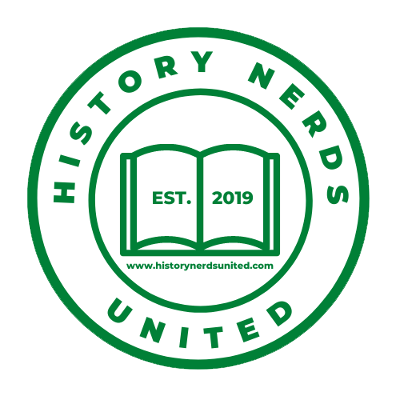Here is part 2 of my interview with author Eric Jager. (Missed part 1? Go here first.) Will add link to first post
(HNU) As I mentioned, The Last Duel is becoming a movie with some real star power behind it. How does that process work? I suspect it is a long road from writing the book to having a movie deal for it.
(EJ) Thanks to my wonderful literary agents, the book was optioned three consecutive times, first by Paramount for Martin Scorsese, then for Hunger Games director Francis Lawrence, and finally for Sir Ridley Scott. (It seems fitting that a man with a knighthood would direct a film about knights in combat!) From the first option to the planned release later this year, fifteen years will have gone by. Authors eager to see their books adapted should not hold their breath. As to how the process works, it remains almost a complete mystery to me and seems to depend largely on serendipity. The producer who brought the book to Matt Damon, who in turn enlisted Ridley Scott, told me he found the book on a library table. Another producer once said to me, “You have managed to transfer your obsession with this story to us.” That was a telling remark. As an author, you’re understandably obsessed with your own book. But for it to become a film, others must become obsessed as well.
(HNU) Will you invite me to the premiere? Related question, why not?
(EJ) Ha! I have no idea whether I’ll be there myself. It may premiere overseas, in France, before it hits the theatres here. Given what the pandemic has wrought, I’ll just be thankful if the film enjoys a semblance of what we used to think of as a normal theatrical run.
(HNU) Obviously, a book needs to be tweaked to fit into a movie, but then there are movies like Braveheart which eschew accuracy to an extreme degree. Do you worry about Hollywood playing loose with historical facts or do you see the medium as something completely different?
(EJ) Books always have nuances and details that do not survive screen adaptation, and I knew this would be true for my book from the first show of film interest years ago. Each time it was optioned, I sat down with some of the people involved, and I was fairly confident afterwards that the resulting film would capture at least some of the book’s spirit. In two cases, I also read multiple versions of the script, allowing me to see the blueprint for the film. After reading the nearly final script for Sir Ridley’s production, I was thrilled that it caught not only the spirit but a great deal of its substance as well. The writers — Matt Damon, Ben Affleck and Nicole Holofcener — did a great job.
(HNU) If you could win either a Pulitzer for History or an Academy Award for a screenplay, which one would you choose?
(EJ) I doubt that my straight-forward prose will ever win prizes. And screenwriting is way above my skill level. But I’d love to see Sir Ridley and his cast and crew of more than five-hundred people walk away next year with some Oscar gold. They all worked really hard, and brilliantly, through a pandemic no less, and any awards or accolades they receive will have been richly earned.
(HNU) Who are your favorite authors? Are you reading anything right now?
(EJ) Oh, I love this question! Because at the end of the day, I’m sick of my own writing and grateful to be able to sink back into a great book or an absorbing story. I read more nonfiction but love well-wrought fiction, too. Chekhov is a favorite, and the master John McPhee, and that genius Margaret Atwood. Besides literature, as you might expect, and history, for obvious reasons, I also read popular books about anthropology (e.g., Ian Tattersall, Masters of the Planet), paleontology, and historical artifacts or ancient languages (e.g., Margalit Fox, The Riddle of the Labyrinth). Recently I read a superb book about the Shakespeare author controversy, Contested Will, by my good friend and former Columbia colleague, Jim Shapiro. I like good writing on just about any subject, and I’m always studying how other writers practice their craft.
(HNU) You are an extremely accomplished individual, but the pandemic has caused people to do things they would not normally do. One of those things is trashy TV. Will you admit to watching trashy TV and reveal to the world which shows are your guilty pleasures?
(EJ) Peg and I love to stream from Netflix or Prime and watch film classics on Criterion. Among recent series, The Americans was superb, while The Blacklist (with an ebullient James Spader) has been a guilty pleasure. We’re now watching J. K. Simmons in Counterpart, a dark Cold-War sci-fi thriller. Anything adapted from the brilliant Kate Atkinson is a must. So, too, with the late John le Carré — e.g., The Night Manager. We’re also big fans of Robert Glenister (Prime Suspect, with Helen Mirren), who years ago read an abridged version of The Last Duel for BBC Radio’s “Book of the Week” and kindly came back to read the unabridged audiobook.
(HNU) Speaking of TV, a stereotype is always that majoring in English or anything of that ilk will only lead to being an English teacher. Are you proof that those people are stupid and need to update their material?
(EJ) I keep hearing (and reading) that various professions and industries are always looking for smart people who can read critically, write clearly and speak persuasively. I can’t think of any professional line of work where none of these things matter. In recent years, I’ve written letters of recommendation for UCLA English majors who’ve gone to law school, med school, and also into publishing. They’re all flourishing, not because of my letter but because they’re smart, talented, and they worked hard acquiring and polishing certain skills, including the ability to work well with others. I’m not interested in creating clones of myself, which is one reason I enjoy working with undergrads more than grad students, because undergrads are still considering a world of possibilities and often show more intellectual curiosity than older students who have already chosen, or resigned themselves to, a certain path.
(HNU) Your next book is Duke John’s Skull: The Murder that Made the Hundred Years’ War. When can we expect that or does putting a time out there put too much pressure on you?
(EJ) I’m glad to say it’s pretty close to being finished. But I keep wondering: who wants to read a book about yet another dead French duke? (Author’s Note: Me, Eric. Me.) American readers are fascinated by just two historical assassinations: Lincoln and JFK. Two other presidents were assassinated, Garfield and McKinley, but you hardly ever hear about them. That leaves very little room for murdered Frenchmen, no matter how important in their time! Still, I had great fun researching this 1419 murder mystery, studying signed depositions by eyewitnesses and getting curators to show me plaster casts of the murdered man’s skull, massively fractured by what was probably a heavy ax blow from above. That was a blow felt by millions, since it changed the course of a whole war, enabling Henry V to conquer much of France and setting the stage for Joan of Arc.


Leave a Reply
You must be logged in to post a comment.